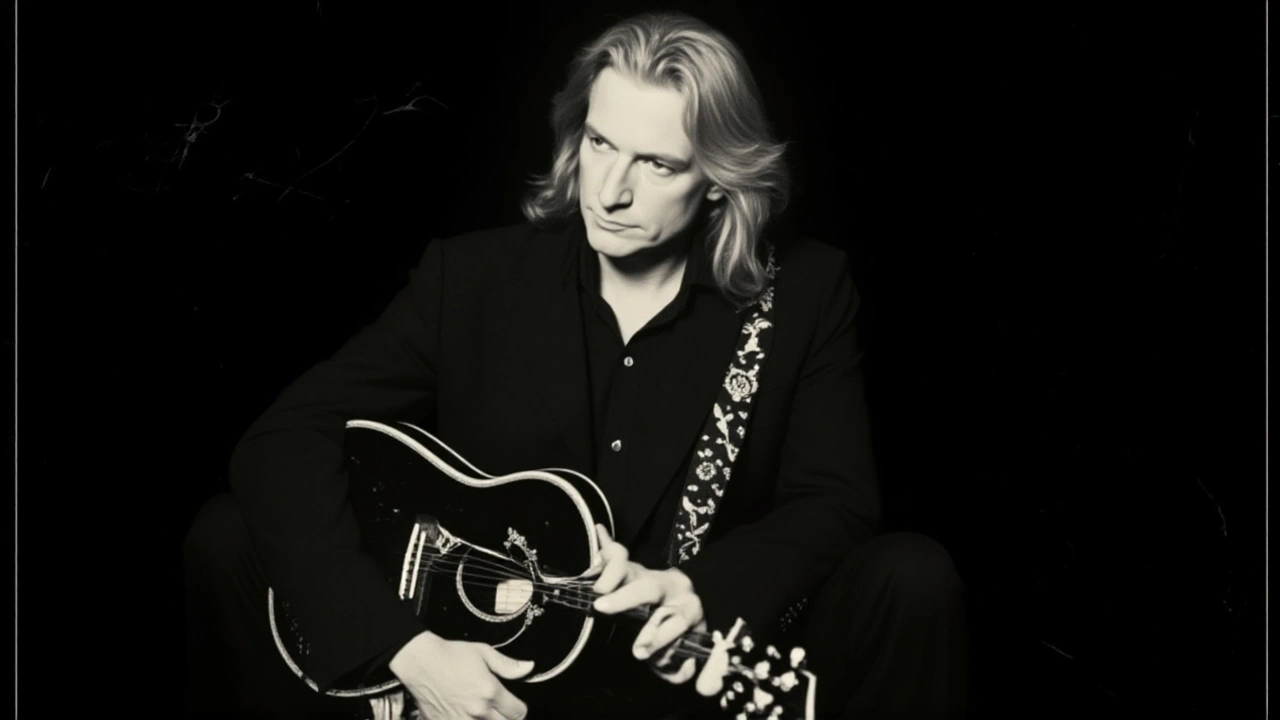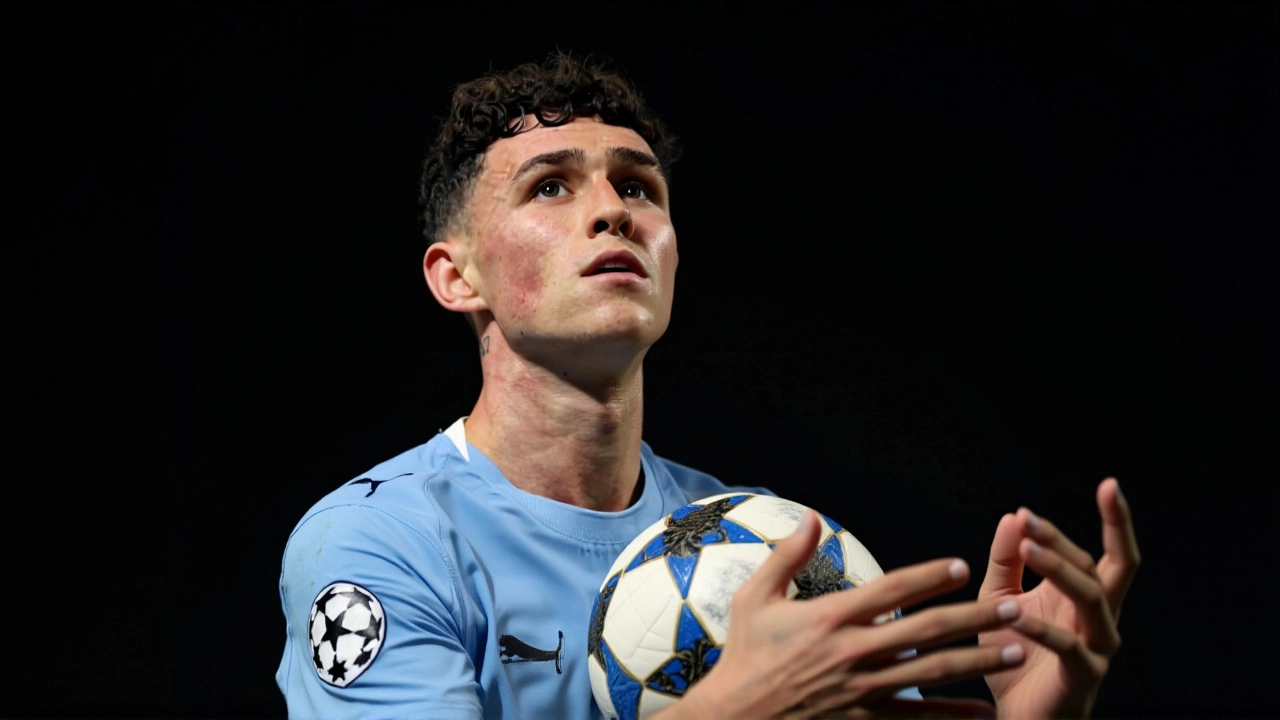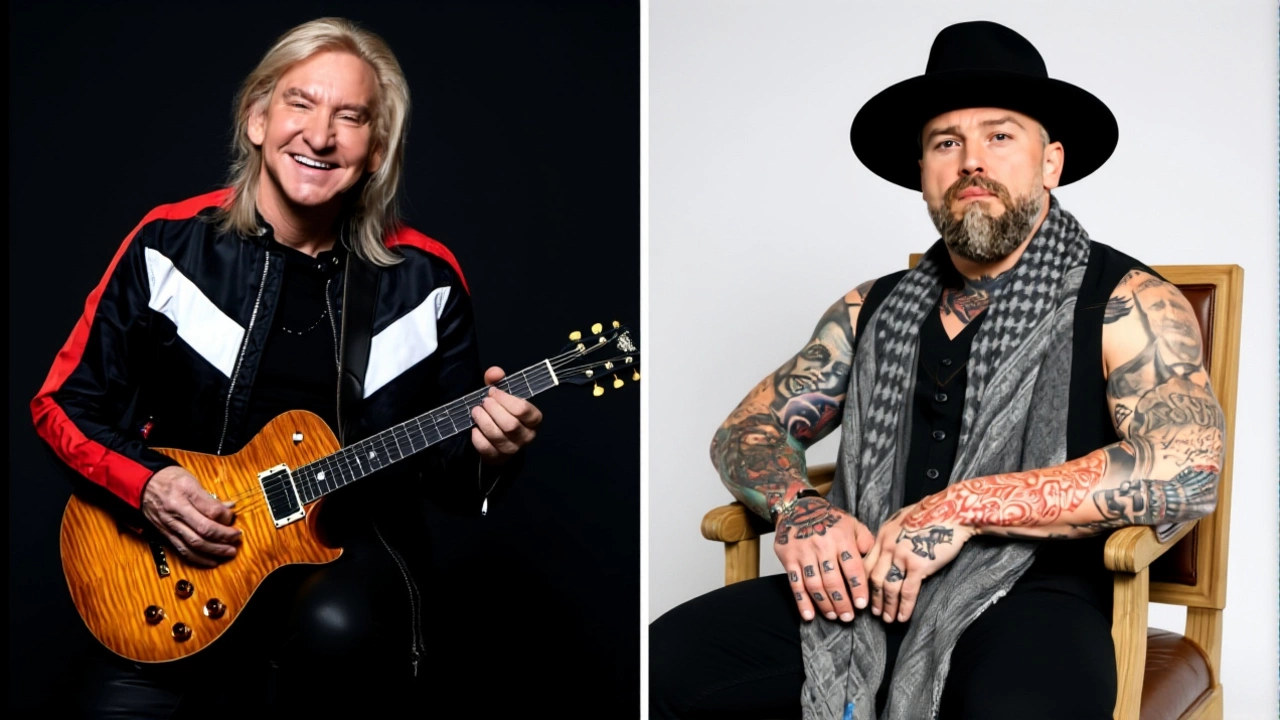When NBC dropped the surprise announcement on October 20, 2025, that Joe Walsh and Zac Brown would step in as Mega Mentors for Season 28 of The Voice, fans didn’t just cheer—they remembered. Walsh, the gritty, virtuosic guitarist behind The Eagles classics like "Life in the Fast Lane," and Brown, the genre-bending country crooner who turned "Chicken Fried" into a national anthem, aren’t just guest stars. They’re the emotional and technical lifelines for contestants facing the most brutal stage of the competition yet: the Knockout Round, which begins October 27, 2025, at 8 pm ET/PT on NBC and streams the next day on Peacock.
Who’s Mentoring Whom—and Why It Matters
The pairing isn’t random. Joe Walsh will guide the artists on Reba McEntire’s and Niall Horan’s teams—two coaches whose styles lean toward rock-tinged ballads and pop-rock storytelling. Walsh’s raw, blues-drenched guitar work and his ability to turn a song into a visceral experience are exactly what these singers need. He’s not just a legend; he’s a master of emotional intensity. Remember his solo hit "Walk Away"? That’s the vibe he’ll be pushing: authenticity over polish. Meanwhile, Zac Brown steps in to mentor Michael Bublé’s and Snoop Dogg’s teams. Yes, Snoop Dogg. The same Snoop who, just two months ago in August 2025, dropped the surprise country-hip-hop fusion "Let It Run" with Brown—a track that cracked the Billboard Hot Country Songs chart and sparked debates about genre boundaries. Brown’s role here is more than musical; it’s cultural. He’s the bridge between traditional country and modern experimentation, and he knows how to make a voice cut through noise.The Knockout Round: No Second Chances
This season’s Knockout Round is unlike any before. Each coach enters with eight artists. After the performances, they must pick just four to advance to the Playoffs—no steals, no saves, no mercy. And here’s the twist: for the first time ever, each coach gets a "Mic-Drop button." Press it once, and you lock in the one performance that blew you away. That artist automatically becomes a finalist in a viewer vote to determine who opens the The Rose Parade Presented by Honda on January 1, 2026, in Pasadena, California. "It’s not about who sings the highest note," said one former contestant who made it to the Playoffs in Season 25. "It’s about who makes you forget you’re watching TV. That’s what Walsh and Brown are here to teach. They’ve been there. They’ve played arenas with no safety net. They know what sticks." The absence of Battle Advisors like Kelsea Ballerini and Lizzo—whose roles were crucial in the earlier Battle Round—makes this phase feel even more intimate, more dangerous. The artists are alone with their coaches, their songs, and their nerves. One misstep, and it’s over.Why These Two? The Legacy Factor
Joe Walsh was inducted into the Rock and Roll Hall of Fame in 1998—not for being flashy, but for being real. His solos aren’t just notes; they’re stories. He’s played with James Gang, solo, and with The Eagles during their most turbulent years. He’s seen fame, excess, and reinvention. His advice won’t be about technique—it’ll be about survival. Zac Brown won Best New Artist at the Grammys in 2010, but his real power lies in adaptability. He’s collaborated with Jimmy Buffett, John Mayer, and now Snoop Dogg. He’s the guy who can turn a barbecue anthem into a stadium chant and still make you cry at a wedding. His Instagram post on October 24, 2025, said it best: "Music changed my life and now I get to help light that spark for someone else. Let’s go!" These aren’t celebrity cameos. They’re masterclasses disguised as TV moments.
The Ripple Effect: Beyond the Stage
The Rose Parade performance isn’t just a trophy—it’s a launchpad. Past winners like Season 14’s Tessanne Chin and Season 19’s Cam Anthony went on to sign major label deals. This year’s winner will perform in front of an estimated 700,000 live spectators and over 25 million TV viewers. That’s exposure most artists spend years chasing. And then there’s the genre-blending angle. Brown’s collaboration with Snoop Dogg isn’t just a novelty—it’s a signal. The music industry is shifting. Country fans are listening to hip-hop. Rock fans are embracing pop. The Voice is reflecting that. Walsh’s presence signals that rock still matters. Brown’s signals that boundaries are crumbling. For contestants caught between styles, their mentors aren’t just guiding them—they’re validating their hybrid identities.What’s Next?
The Knockout Round airs over four weeks, starting October 27. By November 24, the Playoffs will be set. Then, the live shows begin in December. But the real drama? The Mic-Drop winner announcement on December 17, 2025. Who will it be? A rock balladeer channeling Walsh’s grit? A country-rap hybrid echoing Brown’s fusion? The answer could redefine what it means to win The Voice.
Behind the Scenes: The Unseen Pressure
Coaches aren’t the only ones under pressure. The contestants are handed their pairings just 48 hours before their performances. They pick their own songs—no help from producers. One Season 27 finalist told reporters: "I had three hours to rewrite my entire vocal approach. My coach was gone. The mentor was on Zoom. I was alone with my fear. And then I remembered: Walsh didn’t become Walsh by playing it safe." That’s the unspoken message being sent: Be bold. Be messy. Be human.Frequently Asked Questions
How do Joe Walsh and Zac Brown’s mentoring roles differ from previous Battle Advisors?
Unlike Battle Advisors like Lizzo or Nick Jonas, who offered brief feedback during rehearsals, Walsh and Brown are embedded in the Knockout Round process. They work directly with artists over multiple days, helping them reshape arrangements, refine vocal delivery, and channel emotional authenticity. Their input is structural, not superficial—focused on long-term artistic growth, not just one performance.
Why is the "Mic-Drop button" such a big deal?
It gives coaches the power to override the usual voting system by selecting one standout performer from their team. That artist becomes eligible for a public vote to win a performance at The Rose Parade—worth an estimated $1 million in exposure. It’s a rare chance for a contestant to leapfrog the competition entirely, bypassing the traditional elimination path.
Has anyone ever won The Voice after being mentored by a legendary artist like Walsh or Brown?
No Mega Mentor has ever been this iconic before. But past mentors like John Legend and Kelly Clarkson helped propel finalists to major deals. In Season 22, a mentee of John Legend signed with Interscope within weeks of the finale. With Walsh’s rock credibility and Brown’s crossover appeal, this year’s winner could land a record deal even before the live shows end.
What impact could this have on the future of The Voice?
This season signals a shift from celebrity coaching to artist-to-artist mentorship. By bringing in industry titans who’ve survived decades in music, NBC is elevating the show’s credibility. Future seasons may feature mentors like Dave Grohl, Brandi Carlile, or even Quincy Jones—reinforcing The Voice as a career catalyst, not just a reality show.
Can a contestant from Snoop Dogg’s team really win with Zac Brown’s help?
Absolutely. Brown’s August 2025 collaboration with Snoop on "Let It Run" proved he can navigate hip-hop rhythms and country storytelling simultaneously. His guidance could help a Snoop team artist blend rap cadences with country phrasing in a way that feels organic—not gimmicky. That fusion could be the key to winning the Mic-Drop vote.
When will the Rose Parade performance air, and how does the voting work?
The 137th annual Rose Parade airs live on January 1, 2026, on NBC. The four Mic-Drop winners (one from each team) will be announced on December 17, 2025. Viewers then have a 48-hour window to vote via the NBC app. The artist with the most votes performs at the parade. Past Rose Parade performers saw their Spotify streams jump by 300–500% within 72 hours.
